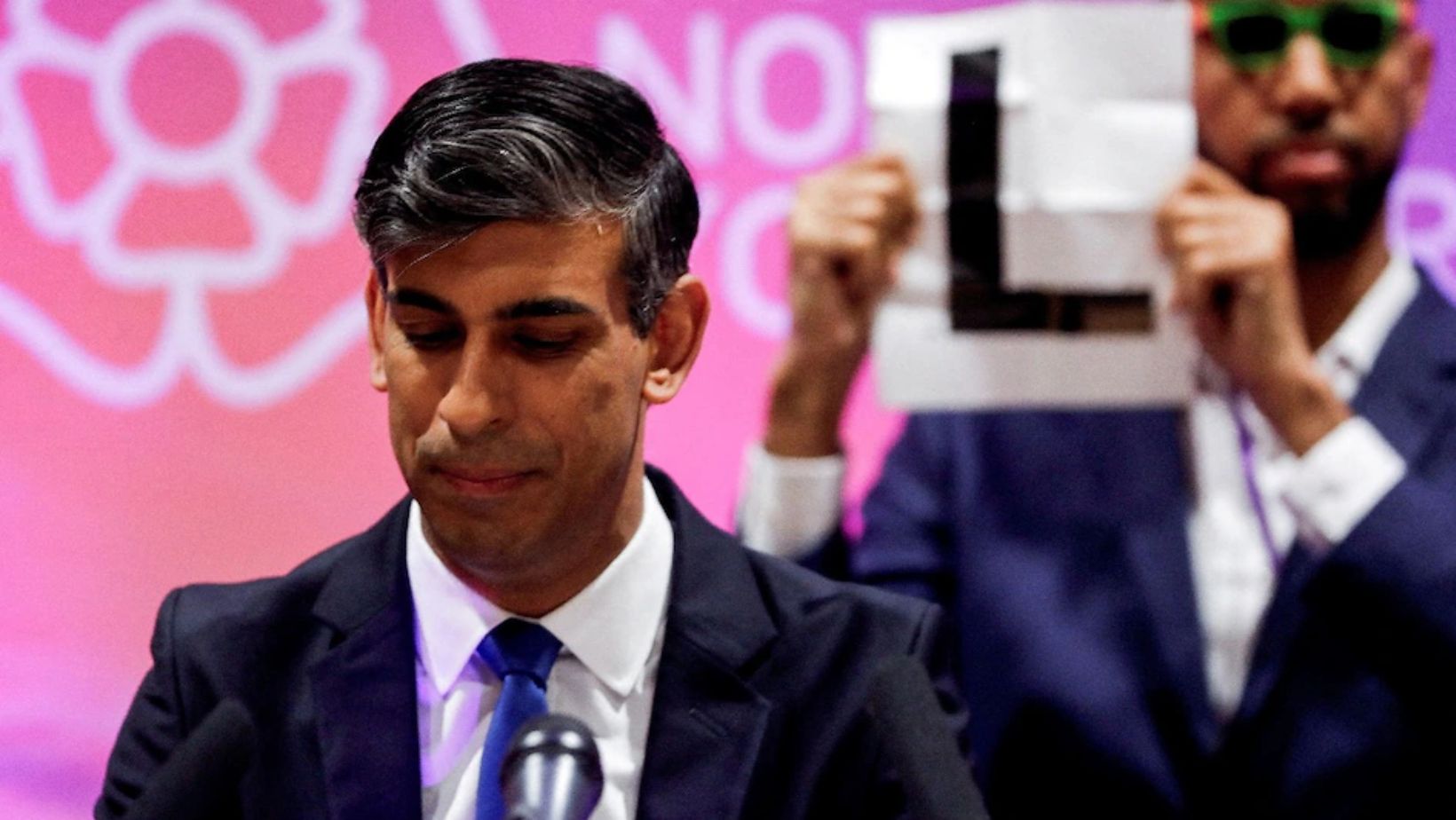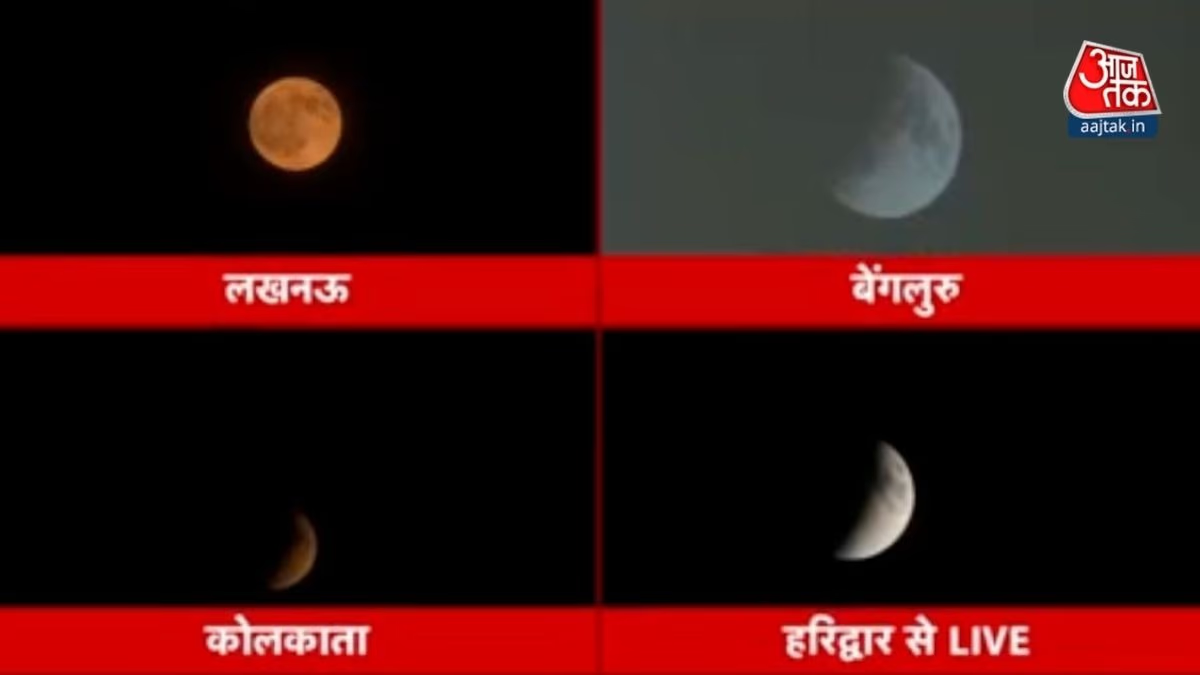The drumbeat of change is resonating across the globe, including within the UK's latest election results. The Labour Party has secured a historic victory, and Keir Starmer is poised to take over Britain's helm. After 14 years under Conservative rule, the relationship between India and the UK has flourished, but with Starmer's narrative of change triumphing in the elections, it evokes questions about the future impact on bilateral ties. Will the political shift in Britain favor India, or will it intensify tensions over issues like Khalistan and Kashmir?
10 Downing Street, since 1735, the official abode of the British Prime Minister, has been the breeding ground for decisions impacting Britain and the entire world for 275 years. With Keir Starmer's compelling victory, there's an unfolding narrative: what does this mean for India? Keir Starmer, rising to power with a call for change, beckons the question – will his tenure bode well for India? Will his approach significantly differ from Rishi Sunak, who faced electoral defeat?
Several Indians Triumph in Elections
Keir Starmer, advocating the credo 'country above party', has soared beyond 400 seats, bolstering his party's confidence. Amongst the victors are many Indian faces, including Preet Kaur Gill, who may play a pivotal role in shaping India-UK ties. As Britain's first Sikh female MP, Gill is controversially known for her staunch opposition to India, often spouting critical remarks against the country.
At the onset of the year, Gill, a Labour Party politician, broached the issue of Sikhs living in the UK, claiming they were being targeted by Indian agents. Several UK-based Sikhs were allegedly on their hit list. She raised concerns over the measures the British government was taking for Sikh security, mentioning the intelligence alliance of Australia, Canada, New Zealand, America, and the UK. These were pre-election statements, but the scenario has since shifted.
What Stance Will the New Government Take on Khalistan?
For the first time in 14 years, a Labour Prime Minister will reside at 10 Downing Street. The last Labour victory dates back to 2010 – since then, Conservative Prime Ministers have been at the forefront. During this period, Indo-British relations strengthened significantly. However, with Labour's return, there's mounting curiosity about the new government's stance on Khalistan, which will be under India's keen scrutiny.
Last year witnessed a startling episode in London when 50 Khalistan sympathizers attacked the Indian High Commission. This incident had ramifications for the bilateral relations between India and the UK. With Khalistan supporters gaining influence within the ruling party, could this embolden the movement? Labour Councillor Parbinder Kaur, who's already under scrutiny for sharing Khalistan-supportive posts, had posed with Keir Starmer in front of a gallery celebrating separatist figures who were notorious for orchestrating politically-motivated murders in India.
The World Has Transformed in 14 Years
Keir Starmer reevaluated and transformed his party's policies to secure a win for the Labour Party. The question arises – will he extend this transformative strategy to his foreign policies? Over the past 14 years, the world has changed significantly, with India emerging as a powerful entity more assertively voicing concerns and objections. Thus, Starmer's diplomatic posture towards India will be fundamental.
Alongside Varinder Jhutti, another Labour MP with connections to Khalistani groups, Preet Kaur Gill caused a stir with her public pose alongside Starmer, amidst portraits of separatists like Labh Singh and Sukhdev Singh Babbar.
Rise of Anti-India Parliamentarians in the Labour Party
Notably, the Labour Party harbors a significant number of MPs who have expressed anti-India sentiments. Despite this, the party, under the newly-elected Prime Minister Keir Starmer, granted them electoral tickets, and Starmer himself campaigned on their behalf. Hence, the pressing question is whether the recent change in Britain's political landscape will turn out to be favorable for India or will it grant leeway to individuals who express their dissent under the guise of freedom of speech.
The future of Indo-UK relations is also heavily reliant on the new government's perspective on Kashmir. Historically, the Labour Party has adopted an anti-India stance over Kashmir, consistently supporting calls for self-determination for Kashmiris. Will Keir Starmer correct this misstep by his party?
Jokes Surrounding Sunak's Loss
While Keir Starmer is celebrated for his victory, caricatures mocking Rishi Sunak's defeat are surfacing. Sunak, the former Prime Minister, now faces criticism post-election. During his concession speech, someone holding up an 'L' for loser sign appeared behind him – the person was Nico Omilana, a rival candidate who also lost the elections.

Source: aajtak
Despite this, Omilana managed to position himself as a stark backdrop to Sunak, generating one of the most talked-about images from the British elections. This is the same Rishi Sunak under whom Indo-UK relations soared to new heights, strengthening and improving diplomatic ties.
Labours’s Stance on Kashmir Historically Opposed by India
India and the UK have generally enjoyed robust relations, which were further solidified during the Conservative Party’s tenure. Notably, the Boris Johnson era witnessed a surge of energy in bilateral ties. The year 2022 saw Indo-British relations escalating to a comprehensive strategic partnership. However, Starmer hails from the Labour Party, traditionally not known for a soft stance towards India. Notably, under Jeremy Corbyn's leadership, Labour advocated for international observers to enter Kashmir, declaring a humanitarian crisis and pushing for Kashmir's right to self-determination – a move strongly opposed by India. Corbyn also offered to mediate to prevent any potential nuclear conflicts between India and Pakistan and to restore peace by liaising with the high commissioners of both nations.
Starmer Promises to Improve Relations with India
The foreign policy missteps linked to Corbyn's tenure with Labour now lie in the past. Starmer has revamped the Labour Party and has clarified that Kashmir is a bilateral matter between India and Pakistan. Moreover, he has risen to power on the promise of improving relations with India.
The Labour Party has traditionally followed an ideology-based foreign policy, often critiquing India and other countries on human rights records – which has never been well-received by the Indian government. Another pivotal issue concerns the work permits granted to Indian workers relocating to the UK. Labour has professed an intent to reduce the number of legal immigrants and prevent illegal immigration.
Starmer Must Convince India of His Pragmatic Foreign Policy
If the Labour government prioritizes mending ties with India, then forging a free trade agreement with India will top Starmer’s agenda, potentially benefiting both nations greatly.
However, Starmer must convince the Indian government that he intends to pursue more practical foreign policies. It remains to be seen how the new UK government will balance these crucial aspects.
Starmer’s Journey Isn’t Easy
Considering the current state of Britain, Starmer’s path is challenging. Notably, British-Indians have made a strong showing in these elections, and the prevalence of Indian-origin politicians is palpable in both Labour and Conservative parties, irrespective of the outcome.
Although Rishi Sunak has stepped down, a greater number of British-Indians have entered Parliament this time. These elections saw 107 individuals of Indian origin contesting across 650 seats, many of whom succeeded. Regardless of which party has come to power, the influential presence of Indians is undeniable.
Indians Dominate Both Major Parties
Sunak may have conceded his party's defeat, but he still managed to secure a win in Northern England. Sual Braverman, a leading Conservative member, triumphed in Waterlooville, and Gagan Mohindra from a Punjabi Hindu family, also a Conservative, won from South West Herts. Labour’s Navendu Mishra retained his Stockport seat, reflecting the party's strong six-member Indian-origin representation from the previous parliament, expected to double this term.
Keir Starmer's allies believe that the dynamic political landscape in Britain will ensure an improvement in Indo-UK relations.
Bollywood Influence in British Elections
Conservative Shivani Raja has emerged victorious from Leicester East, toppling Labour's long-standing rule of 40 years in the area. Notably, this election saw the involvement of Bollywood's Shilpa Shetty campaigning for an independent candidate, Keith Vaz, despite her efforts, she couldn’t sway the vote in favor of Vaz.
The Significance of British-Indians in the UK Election
The significance of the Indian-origin community in British elections is exemplified by both Rishi Sunak and Keir Starmer reaching out to Hindu temples prior to the elections, with Starmer visiting London's Swaminarayan Temple. According to the 2021 census, the UK is home to over a million Hindus, making them the third-largest religious group in a predominantly Christian and Muslim society.




